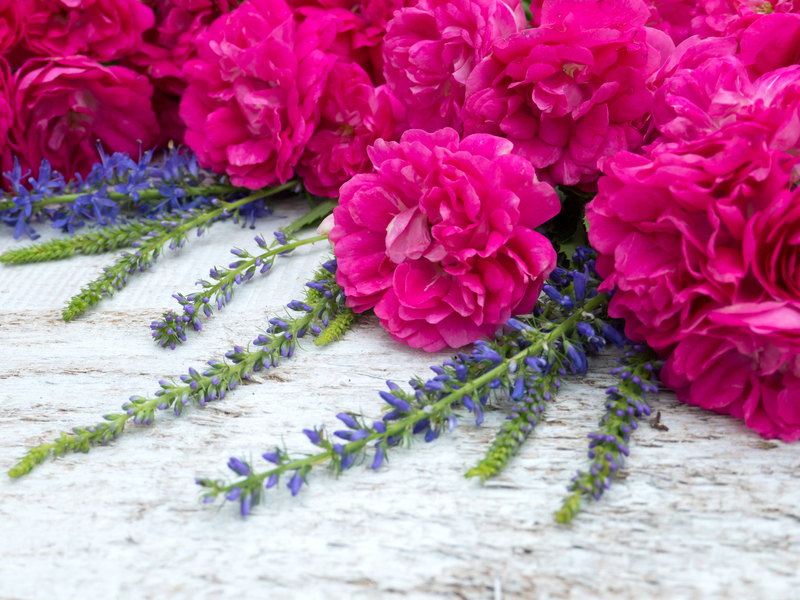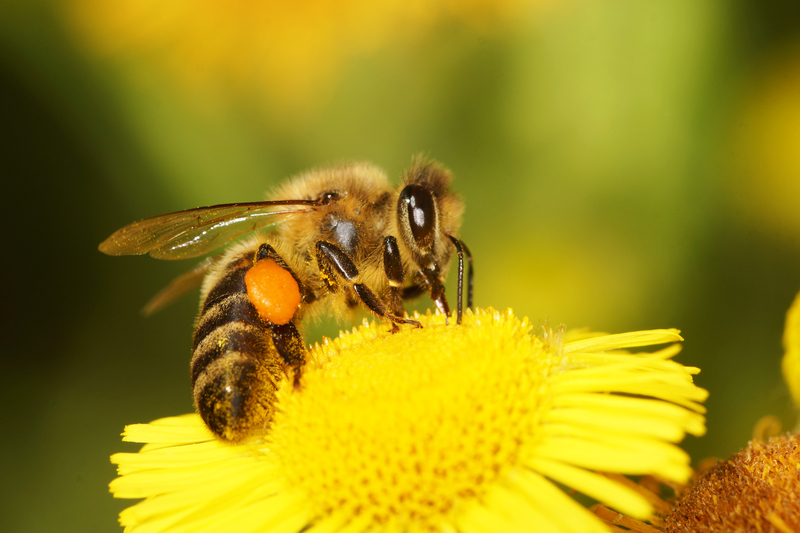The New Gardener's Toolkit: 9 Essential Tips for Starters
Posted on 10/06/2025
The New Gardener's Toolkit: 9 Essential Tips for Starters
Embarking on your gardening journey? New gardeners often face a steep learning curve, but with the right tools and advice, growing a flourishing garden becomes an achievable dream. This comprehensive guide offers carefully curated tips and insights focused on the new gardener's toolkit--your foundation for a thriving first garden.
Why Building a Gardening Toolkit Matters for Beginners
Gardening is more than planting seeds--it's about understanding your environment, nurturing your plants, and developing a set of skills that grow with you. For anyone just starting, preparing a solid toolkit (both physical and practical know-how) is the first step toward gardening success. Below, discover essential gardening tips for beginners, recommendations for new gardeners, and step-by-step advice on assembling your toolkit for productive gardening.

9 Essential Tips for Starters: The New Gardener's Toolkit
1. Start Small & Set Realistic Goals
New gardeners often feel inspired to transform their entire landscape overnight. However, starting small allows you to manage your time, energy, and resources efficiently. Focus on a small patch, a raised bed, or even containers. This approach reduces frustration, provides achievable learning experiences, and sets you up for long-term success.
- Choose 1-2 types of vegetables or flowers.
- Experiment with easy-to-grow plants, such as lettuce, radishes, or marigolds.
- Gradually expand your garden as you gain confidence and proficiency.
2. Understand Your Local Climate and Soil
Your gardening toolkit should begin with an understanding of your unique growing conditions. Not all plants thrive everywhere. Check your USDA hardiness zone or local climate guides, and perform a simple soil test to determine pH and composition.
- Consult online zone maps or ask local nurseries for advice.
- Use at-home soil test kits to identify pH and vital nutrients.
- Match plant varieties to your region for higher success rates.
3. Invest in Quality Basic Gardening Tools
A successful garden starts with the right gardening equipment. As a new gardener, you don't need every gadget on the market--instead, prioritize a few essential tools that combine function, comfort, and durability:
- Trowel - For digging, planting, and moving soil.
- Pruners - Essential for trimming and harvesting.
- Hand fork or cultivator - Loosens soil and removes weeds.
- Watering can or hose with a spray nozzle - For gentle, even watering.
- Gloves - Protects hands from thorns, soil, and pests.
Choose ergonomic designs to reduce strain and select rust-resistant materials for longevity. Clean your tools after each use to prevent disease spread and maintain their effectiveness.
4. Plan Your Garden Layout
Efficient use of space is crucial, especially in small gardens. Garden planning not only enhances aesthetics but also maximizes crop yield and health. Consider sun patterns, access to water, spacing requirements, and companion planting (pairing plants that benefit each other, like tomatoes and basil).
- Sketch your intended layout or use free online garden planners.
- Group plants with similar water and sun needs together.
- Leave paths for easy maintenance and harvesting.
5. Master the Art of Watering
Improper watering is a common beginner mistake. Too much or too little can harm your plants. The new gardener's toolkit should include knowledge of sustainable watering practices:
- Water deeply but infrequently to encourage deep root growth.
- Water in the early morning or evening to reduce evaporation and prevent leaf burn.
- Use mulch around plants to retain moisture and regulate soil temperature.
- Check soil moisture before watering--stick your finger an inch below the surface to gauge dryness.
6. Learn the Basics of Plant Nutrition
Healthy plants require a balance of nutrients. As a new gardener, familiarize yourself with the fundamentals of fertilizing and composting:
- Compost kitchen scraps and yard waste to create rich, organic fertilizer.
- Use slow-release or organic fertilizers to avoid overfeeding.
- Know the three key nutrients: Nitrogen (leaf growth), Phosphorus (root and flower development), Potassium (overall health).
Tip: Label plants with their feeding requirements to streamline your care routine.
7. Identify and Manage Pests Naturally
Pests and diseases can challenge any gardener, but chemicals are not always the best answer, especially for beginners. Learn to identify common garden pests (like aphids, slugs, and caterpillars) and use eco-friendly remedies:
- Hand-pick larger pests early in the morning.
- Encourage beneficial insects (ladybugs, lacewings) by growing pollinator-friendly flowers.
- Create barriers, like row covers or copper tape for slugs.
- Use natural sprays (like diluted neem oil or soapy water) as needed.
8. Keep a Gardening Journal
Recording your gardening experiences is a powerful learning tool. Keep a notebook or use gardening apps to track planting dates, weather, harvests, and problems. Over time, you'll identify patterns, celebrate successes, and troubleshoot recurring issues.
- Jot down what you plant and when, including varieties and sources.
- Record fertilizing and watering schedules.
- Log pest sightings and treatments for future reference.
9. Connect with the Gardening Community
Never underestimate the value of community knowledge. Join local gardening clubs, attend workshops, or become active in online forums and social media groups. Sharing questions, photos, and achievements with seasoned gardeners accelerates your learning and helps you discover new gardening tips for beginners.
- Attend plant swaps or community garden events.
- Follow gardening influencers and blogs for inspiration.
- Ask questions--most experienced gardeners love to share their wisdom.
Assembling the Ideal Gardener's Toolkit: Must-Have Items for Starters
In addition to practical advice, here's a quick checklist for your essential gardener's toolkit:
- Hand trowel and fork
- Bypass pruners and loppers
- Sturdy gardening gloves
- Watering can or adjustable hose
- Kneeling pad (for comfort)
- Gardening apron or tool belt
- Plant labels and marker pens
- Soil tester kit (pH and moisture)
- Quality seeds or seedlings
Pro tip: Store your toolkit in a dry, easily accessible location. Regularly sharpen and sanitize tools to prolong their lifespan.

Frequently Asked Questions: Beginner Gardening Tips
How do I choose the right plants for my first garden?
Research what grows well in your region and start with low-maintenance, beginner-friendly plants such as herbs (basil, mint), salad greens, or native flowers. Consult local experts for tailored advice.
Is it better to start from seeds or seedlings?
*Seedlings* offer a head start but may cost more. Seeds are less expensive and offer a wider variety but require patience and care. Beginners often benefit from using a combination, starting with easy seeds and hardy seedlings.
Should I use organic methods as a new gardener?
Organic gardening is sustainable and eco-friendly. Using compost, natural pest deterrents, and avoiding synthetic chemicals can help you produce healthier, tastier crops.
Conclusion: Cultivating Success with the New Gardener's Toolkit
Gardening is a journey that blends science, art, and joy. With these 9 essential tips for new gardeners, your gardening toolkit will not just contain tools but also the skills, confidence, and community connections needed to grow a garden that rewards your efforts. Remember: Patience and curiosity are the most important tools you possess as a beginner.
If you're ready to start, use this guide as your companion. For more gardening tips for starters, bookmark this article, connect with local groups, and share your progress. Every successful harvest or blooming flower is a reminder that every new gardener, with the right toolkit, can create something truly beautiful.
Happy gardening!
Latest Posts
Architectural Elegance in Vertical Gardening
Igniting Your Passion for Home Herb Cultivation
Create an Enviable Garden Without the Hassle
Building a Thriving Orchid Collection
The role of biodiversity in gardens to address climate change

